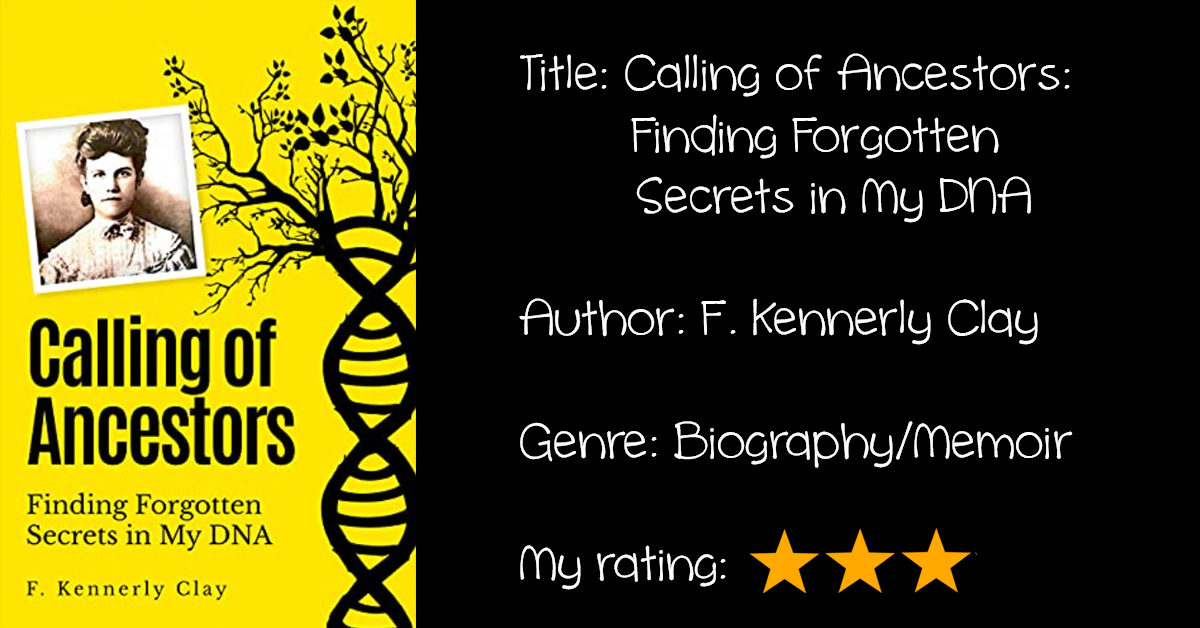Review: “Calling of Ancestors: Finding Forgotten Secrets in My DNA”
A short, insightful essay about a woman’s quest to examine her family’s history and linkage to Black ancestors
This was my thirtieth book I chose via the Reedsy Discovery program, for which I am the single approved reviewer for this new book. This review also appears on Reedsy.
If you’re interested in becoming a Reedsy reviewer (and have the chance to get paid “tips” to review books!) check it out here.
The Premise
A DNA test showing there is a black ancestor in her family leads the author to pursue a historical quest to examine the past secrets in her family, and confront racism in the modern world, as well as her own white privilege.
The Pros & Cons
Deeply affected by the global wave of protests in the aftermath of the death of George Floyd and other Black persons, the author reflects on the impact of racial bias and her own white privilege.
She examines the common claim that many white Americans tout: the “Cherokee blood” story to explain darker pigmentation in some family members, stating that Americans like to align themselves to the “noble” heritage of the persevering Indian. However, they usually distance themselves from Blackness.
When she learns of her ancestor Celia, a Black woman, she wants to bring light to her legacy, which leads her on a quest into her past — and she eventually learns that Celia was not even the only Black person to whom she could trace her ancestral roots.
She is conscious of her own whiteness when she reaches out to a family member:
Would it seem like I’m this white woman excited about having some “ethnicity”, all eager to meet a Black cousin on social media so I can tell him about his white great-grandpappy who was getting it on with his great-grandmother — and now yippee, we’re second cousins?
There were also some profound and eloquent moments of her reflection on white privilege, as she recalls laughing with Black friends and only later learning the underlying seriousness of the situation: the simple act of turning in someone’s driveway is something that she has never had to think about, but her Black friends do as they could be perceived as a threat.
She also expresses concern at the way in which white people want Blacks to “move on” past racism, rather than admit that history influences the present conditions in later generations:
If the Black experience in America were metaphorically represented as female, it is fair to say that we came along and raped her repeatedly for hundred of years, then told her to get up, get back to work and act like nothing happened. And why should that not affect her children?
I appreciated the research and excellent points brought across by the author, and I liked the way her story was presented from her perspective that also aimed to be respectful and mindful of her whiteness. I would, however, have loved to see some greater context about what white privilege represents in a social, economical and political context about the opportunities and barriers Black persons face in society to achieve simple things such as affordable housing and education. I do, however, understand the premise of the book was to share her personal memoir, rather than examine these issues in a more academic way.
Conclusion
I found this essay insightful, and am glad that the author shared her story. I have to admit though that it was incredibly short, and I would have liked to get a better sense of the full breadth of the story — who the author is, why the audience should want to know her story, and what makes her story unique. Her family sounds interesting and I felt like there was a lot more there to explore. I would have loved to see this bloom into a wider story that is shaped around this premise, but also included more of her life. Nevertheless, the prose is excellent, and the information is well researched and presented. I would recommend to any reader who has interest in the topic, and I hope the author continues writing and sharing her insights and wisdom on these crucial issues.








